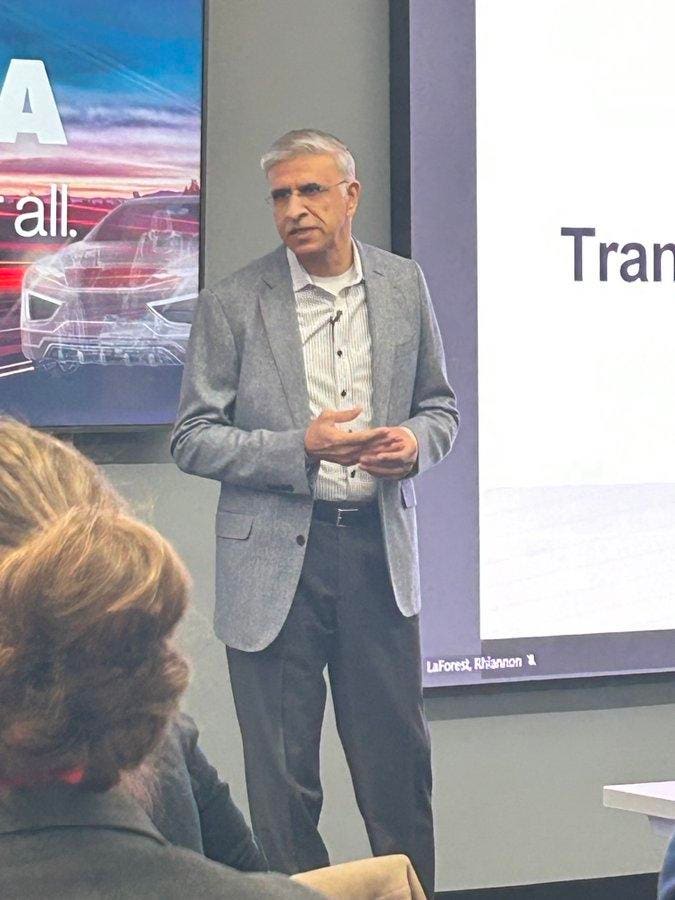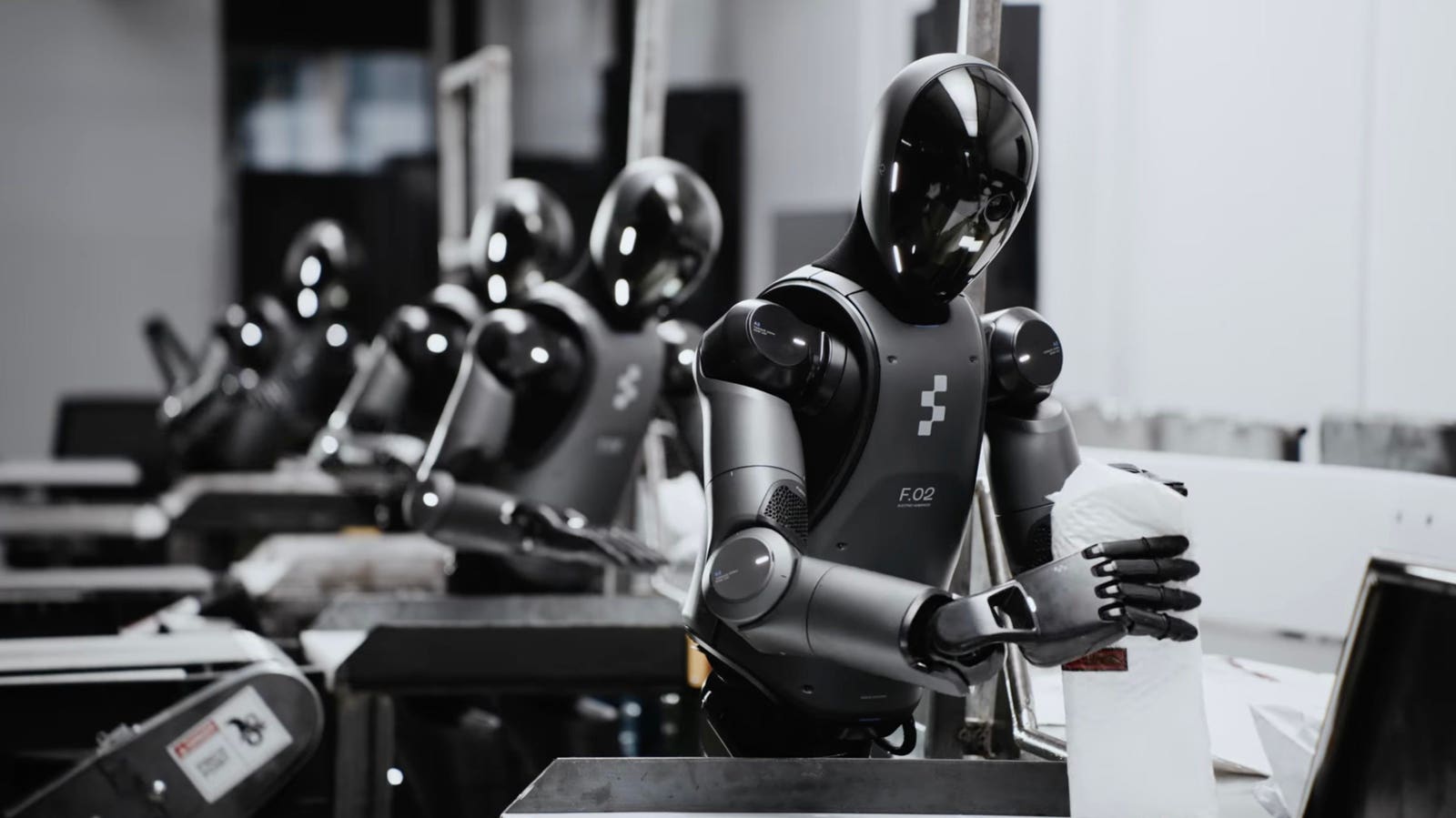Swamy Kotagiri, president and CEO of Magna International Inc., speaks during an Automotive Press … More
Tariffs being implemented by President Donald Trump are only part of the uncertainty facing the auto industry, the CEO of major auto supplier Magna International Inc. said Tuesday.
“It’s already been disruptive,” Swamy Kotagiri said during a presentation sponsored by the Automotive Press Association at Magna’s headquarters in Troy, Michigan, north of Detroit.
“I believe it is untenable in the long run,” he said of tariffs.
But Kotagiri outlined other challenges, including the need for better planning, the difficulty finding trained workers, and new competition from automakers in China.
“We might have to think differently,” the executive said. “We have to find a way.”
Trump has levied a 25% tariff on vehicles and auto parts, with planned tariffs on steel and aluminum to follow. Trump has said he may delay the automotive tariffs, according to The Associated Press.
The North American auto industry has supply chain where parts and vehicles cross borders, often multiple times. Trump wants to undo that and bring more auto manufacturing into the United States.
“Things are in flux,” Kotagiri said. “It’s not easy to change very quickly.”
As a supplier, Magna’s moves depend on its automaker customers, Kotagiri said.
“We have to see how the OEMs (original equipment manufacturers) react,” the Magna chief said. It takes years to build new factories. “That’s why I say you can’t just flip a switch.”
“If tariffs are there, it’s going to have a negative impact.”
Kotagiri detailed other major industry challenges.
Planning: Automakers and suppliers need to improve planning to avoid excess factory capacity, he said. Companies need to “phase in capacity gradually” while also moving “to concentrate on systems where consumers really care.” Vehicle buyers “expect a lot of features.”
New competition: “Some of the new players have no legacy constraints,” Kotagiri said. Chinese automakers are expanding. Chinese automotive brands will expand to one-third of worldwide vehicle sales by 2030, consulting firm AlixPartners said in a 2024 report.
Workforce issues: Manufacturing, including the auto industry already finds it hard to find skilled workers. “It’s a very valid concern for the industry,” the Magna CEO said. Magna operations include apprentice employees. “It’s never enough,” he said.
For Magna, “We’re focused on controlling the controllable,” Kotagiri said. “It’s all we can do.” The automotive supplier said it’s planning for “the factory of the future” which deploys artificial intelligence, data analytics, and other technology, he said.








